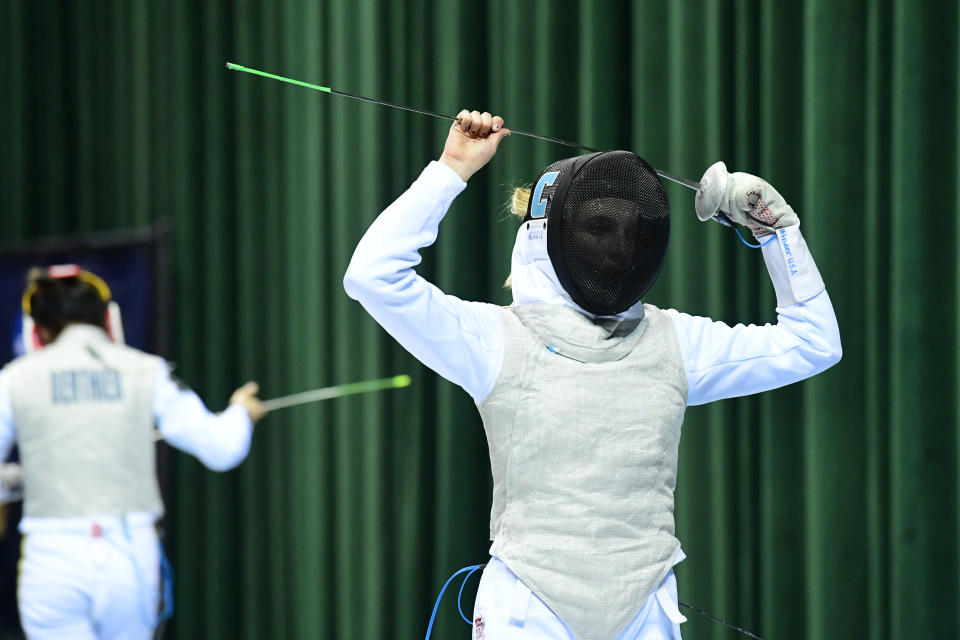Columbia fencing team says it didn't confront Trump with letter after Secret Service warning

The NCAA champion Columbia fencing team’s plan to turn its White House invite into a public challenge of President Donald Trump with a letter on gender issues ended up not working out, according to The Washington Post.
The team had initially intended to confront Trump over his administration’s gender equality policies when meeting him with the letter, signed by four members of the team. The letter can be read here.
Why the Columbia fencing team didn’t confront Trump
When the team was about to meet Trump in the East Room, a White House aide reportedly told the athletes that the Secret Service discourages visitors from handing items to the president, for obvious reasons.
“Secret Service made it pretty clear that something could happen, and I don’t want to find out what that is,” team captain Nolen Scruggs told the Post.
The aide reportedly took the letter and promised to deliver it to Trump. The team then met with the president and voiced no objections in their brief time with him, which reporters were not allowed to witness.
Even though the team turned over the letter, some of its members did quietly signal their protest against Trump with a white lapel pin meant to symbolize gender equality. The White House aide reportedly asked the team to remove the pins as well, but the team declined. Additionally, reportedly half of the 40-person team did not attend the event due to scheduling and political disagreements.
Scruggs told the Post he believed the team had still accomplished something:
“The goal might not necessarily even be to communicate with the president but to communicate with the American people and get them to jump-start a conversation that might not already be happening,” Scruggs said after leaving the White House. “There’s physical evidence that we did this, and just that alone is important.”
A White House spokesperson told the Post that the team also presented a gift to Trump (no word on if it was directly handed to him) and were invited by staff to come back to the White House to discuss their policy concerns.
Why the Columbia fencing team wanted to confront Trump
In their letter, four members of the team — Scruggs, Elise Gout, Quinn Crum and Ilana Solomon — directly wrote to Trump that their victory in the NCAA’s co-ed championship was due to gender equality, while Trump’s electoral victory is “shadowed by continued acts of gender-based prejudice and partisanship.”
The letter then named some specific examples:
Since your time in office, you and your administration have proposed removing protective measures in Title IX that support survivors of campus sexual assault. Your recent Title X domestic gag rule has withheld critical financial resources from public health care providers, choking the access to family planning and contraceptive services. You have perpetuated a culture that conditions women and minority gender identities to be silent - to sacrifice the space they have every right to take up.
The letter also mentioned some of the team’s members following the examples of Megan Rapinoe, Stephen Curry, and Sean Doolittle in not visiting the White House.
With the letter, Gout had told the Post that the intention was “making noise and causing a ruckus and starting a discussion,” rather than the relatively quiet act of turning down an invitation. It’s worth wondering if what the team ended up doing accomplished that, and if a further discussion would still allow the team to accomplish its goal.
More from Yahoo Sports:

 Yahoo Finance
Yahoo Finance 
